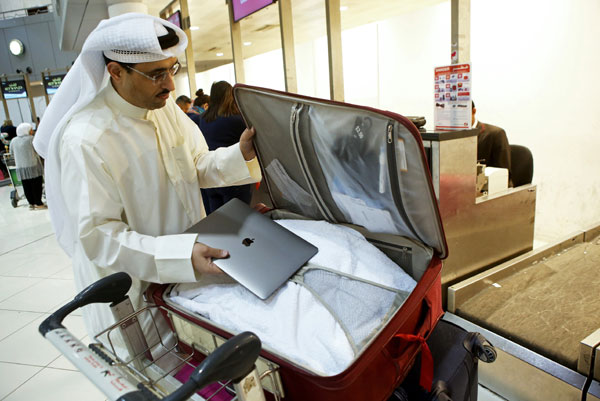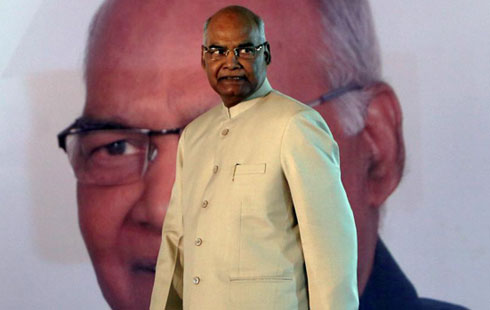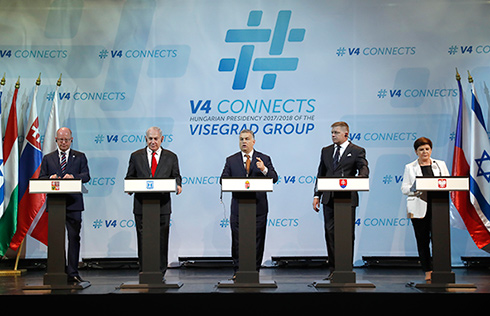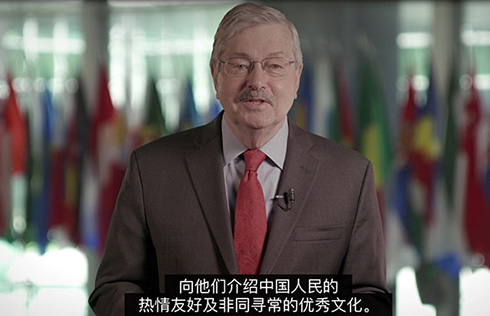US ends laptop ban on Middle East carriers
 |
|
A man puts his laptop inside his suitcase at Kuwait International Airport in Kuwait City in March before boarding a flight to the United States. YASSER AL-ZAYYAT / AFP |
DUBAI, United Arab Emirates - The United States has ended a four month ban on passengers carrying laptops onboard US bound flights from certain airports in the Middle East and North Africa, bringing to an end one of the controversial travel restrictions imposed by President Donald Trump's administration.
Riyadh's King Khalid International Airport was the last of 10 airports to be exempted from the ban, the US Department of Homeland Security confirmed in a tweet on Wednesday.
Middle East carriers have blamed Trump's travel restrictions, which include banning citizens of some Muslim majority countries from visiting the US, for a downturn in demand on US routes.
In March, Washington banned large electronics in cabins on flights from 10 airports in the region over concerns that explosives could be concealed in the devices taken onboard aircraft.
The ban has been lifted on the nine airlines affected - Emirates, Etihad Airways, Qatar Airways, Turkish Airlines, Saudi Arabian Airlines, Royal Jordanian, Kuwait Airways, EgyptAir and Royal Air Maroc - which are the only carriers to fly direct to the US from the region.
A ban on citizens of six Muslim-majority countries - Iran, Libya, Somalia, Sudan, Syria, and Yemen - remains in place though has been limited after several US court hearings challenged the restrictions.
"The aviation industry has been trying to come together with a united message to governments and stakeholders about regulation and supporting the industry," said Will Horton, senior analyst at Australian aviation consultancy CAPA.
"That was dealt a first blow from the travel ban and then a second from the large electronics ban."
Leading industry group the International Air Transport Association criticized the laptop ban as ineffective, as security experts argued that militants could travel to the United States via Europe or elsewhere where the restrictions didn't apply.
Reuters




















